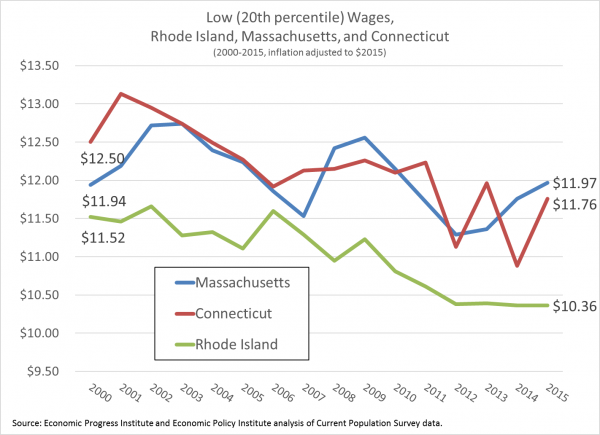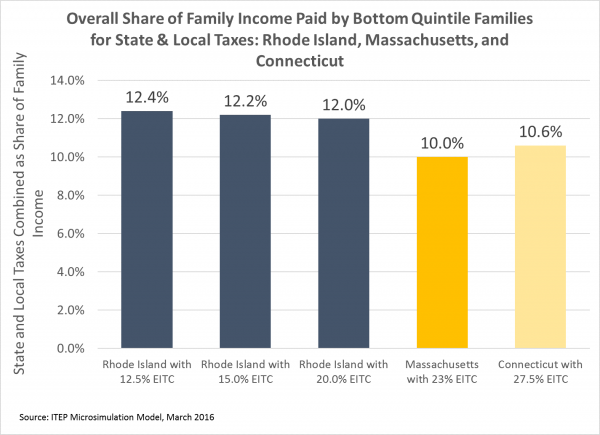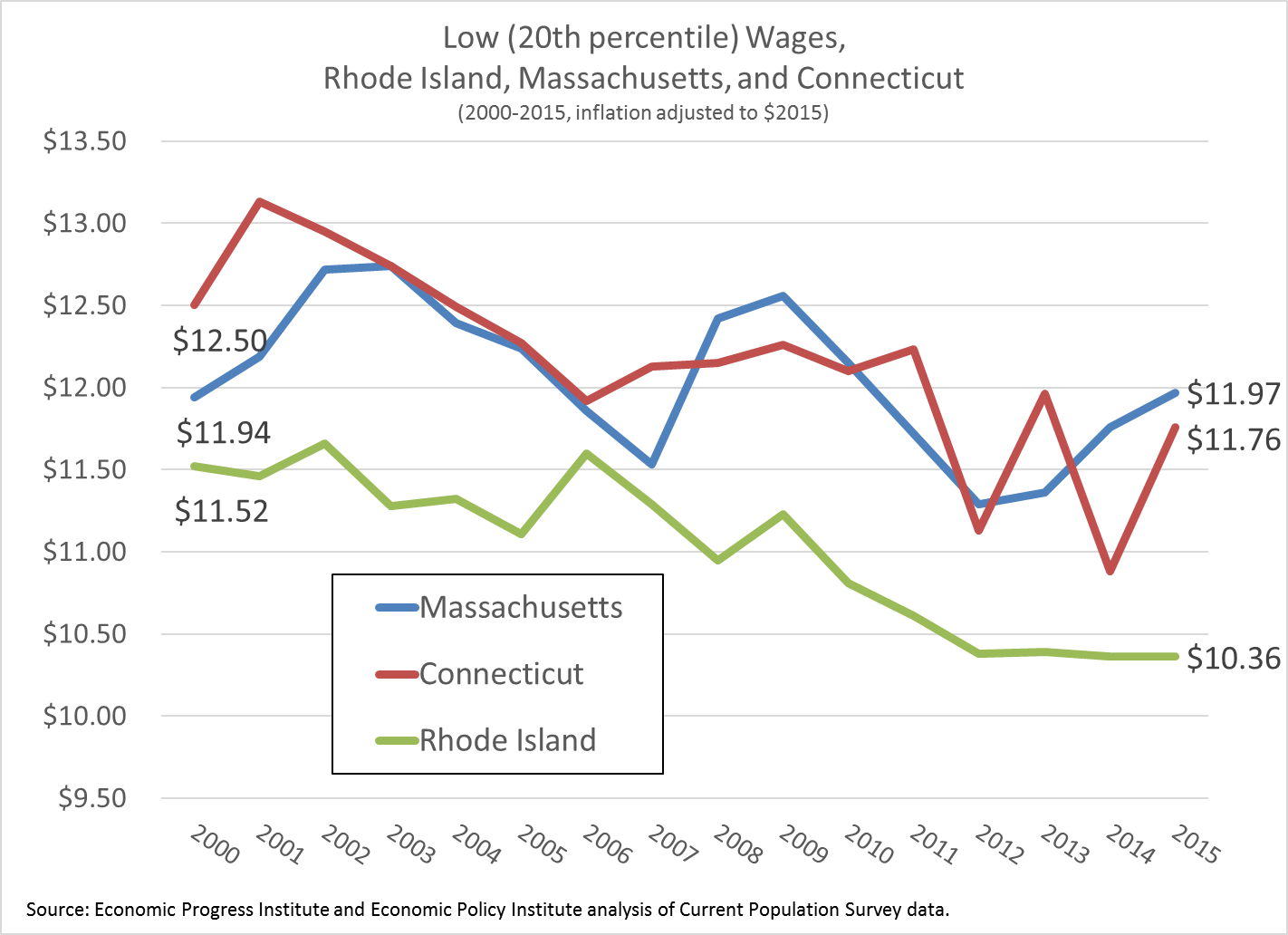
The Governor’s Budget Article 13 increases the minimum wage to $10.10 next year and expands the state earned income tax credit from 12.5 percent to 15 percent of the federal credit (the Governor indicated an interest in further expanding the EITC pending available resources following the mid-year revenue forecast). Senator Goldin and Representative Slater have each introduced bills ((S 2156 and H 7347, respectively) to further increase the EITC to 20 percent of the federal credit. Lawmakers have made real progress in these two areas over the past two years and we are pleased to see a commitment to raising the labor and living standards of our workers going forward.
These two measures are particularly important in light of the persistent decline in Rhode Island’s low wages since 2000, and the gap between low wages in Rhode Island and those in Connecticut and Massachusetts, evident in Figure 1.
Research shows that coupling an EITC increase with an increase in the minimum wage has a greater impact on reducing poverty than either does on its own. This finding contradicts those who point to one approach as superior to the other in helping low-wage workers make ends meet. Both, together, have maximum beneficial impact. Using these policies together also requires that businesses and our government both play key roles in boosting incomes for workers in low-wage sectors, which is both fair and practical.
Today, minimum wage workers do not earn enough to meet basic needs. The Rhode Island Standard of Need, a study that documents the cost of living in the Ocean State, shows that a single adult needed to earn $11.86 per hour in order to meet his or her most basic needs in 2014.

As seen in Table 1, Rhode Island currently significantly lags its neighbors, Massachusetts and Connecticut, in the size of state EITC, and will fall behind Connecticut (and even further behind Massachusetts) for the minimum wage, unless the Rhode Island minimum is increased to at least $10.10 in 2017. Both of our neighboring states have steadily increased their minimum wages in recent years.
EITC filers pay payroll taxes, sales and property taxes, the car tax, gas tax. Even with the increase in the state EITC to 12.5%, Rhode Island still has one of the highest effective tax rates on low-income households, when looking at the combined state and local taxes – 7th highest among all states. The EITC is the best way to provide some targeted tax relief to those who need it most.
Compared to our neighboring states, families in the bottom quintile (bottom 20 percent of family income) pay 12.4 percent of their income in state and local taxes, compared with 10.0 percent in Massachusetts, and 10.6 percent in Connecticut. Increasing the RI EITC helps close this gap modestly – a 15 percent EITC in Rhode Island would lower bottom quintile taxes to 12.2 percent, and a 20 percent EITC would lower it to 12.0 percent, according to recent analysis by the Institute on Taxation and Economic Policy, evident in Figure 2. (Higher sales and excise taxes in RI account for much of the current gap).

Putting more money in the pockets of workers will also put more money in the cash registers of local businesses. Raising the minimum wage to $10.10 would put nearly $27 million in the pockets of 78,000 Rhode Island workers in low-wage jobs, money that would flow quickly into the local economy.
Raising the minimum wage and the EITC are important steps that lawmakers can take to help ensure that workers are able to keep their heads above water in the Ocean State, and to keep the Rhode Island economy on a path to full economic recovery.


Deprecated: Function get_magic_quotes_gpc() is deprecated in /hermes/bosnacweb08/bosnacweb08bf/b1577/ipg.rifuturecom/RIFutureNew/wp-includes/formatting.php on line 4387
Deprecated: Function get_magic_quotes_gpc() is deprecated in /hermes/bosnacweb08/bosnacweb08bf/b1577/ipg.rifuturecom/RIFutureNew/wp-includes/formatting.php on line 4387
Deprecated: Function get_magic_quotes_gpc() is deprecated in /hermes/bosnacweb08/bosnacweb08bf/b1577/ipg.rifuturecom/RIFutureNew/wp-includes/formatting.php on line 4387